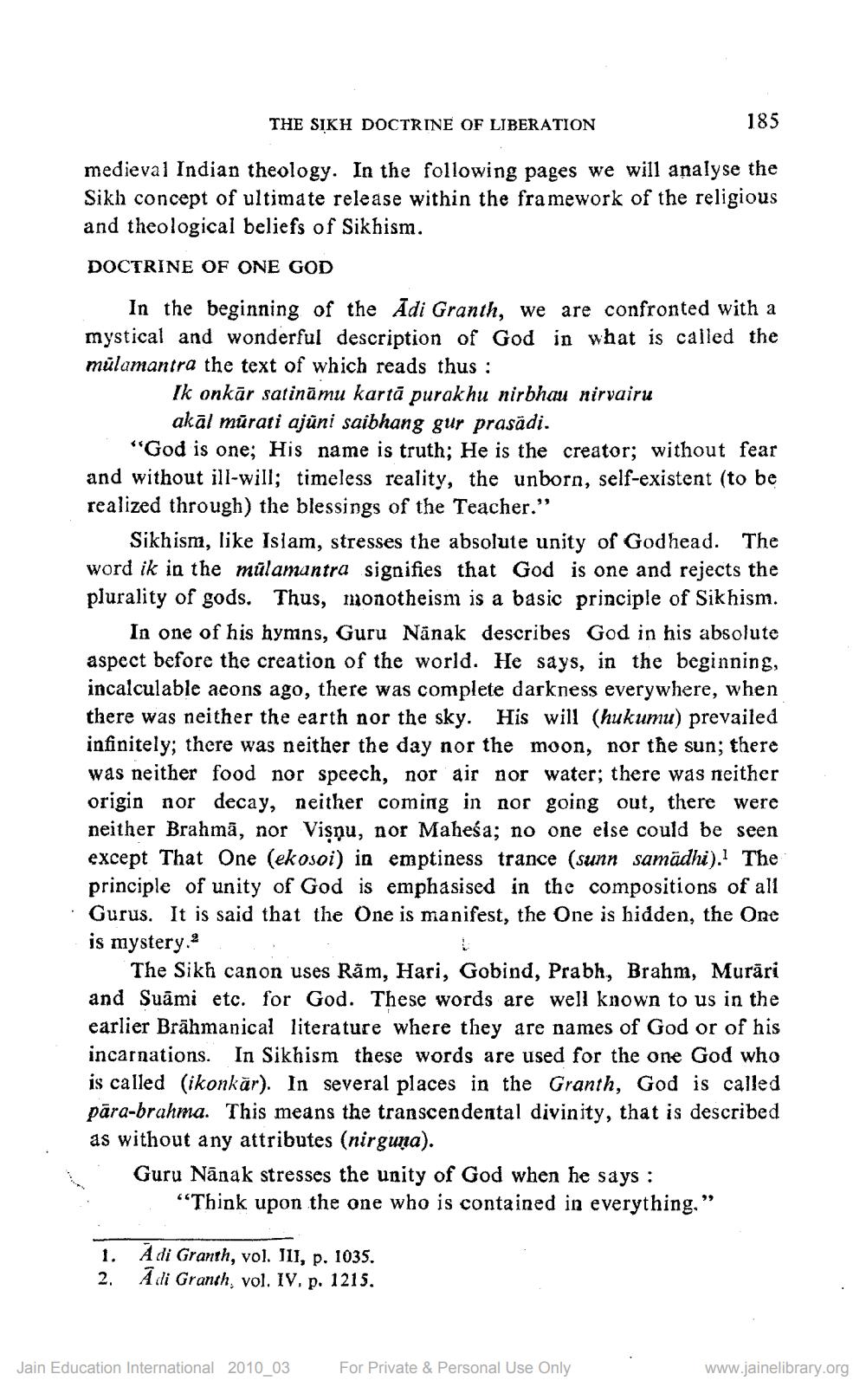________________
THE SIKH DOCTRINE OF LIBERATION
185
medieval Indian theology. In the following pages we will analyse the Sikh concept of ultimate release within the framework of the religious and theological beliefs of Sikhism.
DOCTRINE OF ONE GOD
In the beginning of the Ādi Granth, we are confronted with a mystical and wonderful description of God in what is called the mülamantra the text of which reads thus :
Ik onkār satināmu kartā purakhu nirbhau nirvairu
akāl mūrari ajüni saibhang gur prasadi. "God is one; His name is truth; He is the creator; without fear and without ill-will; timeless reality, the unborn, self-existent (to be realized through) the blessings of the Teacher.'
Sikhism, like Islam, stresses the absolute unity of Godhead. The word ik in the mülamantra signifies that God is one and rejects the plurality of gods. Thus, monotheism is a basic principle of Sikhism.
In one of his hymns, Guru Nanak describes God in his absolute aspect before the creation of the world. He says, in the beginning, incalculable aeons ago, there was complete darkness everywhere, when there was neither the earth nor the sky. His will (hukumu) prevailed infinitely; there was neither the day nor the moon, nor the sun; there was neither food nor speech, nor air nor water; there was neither origin nor decay, neither coming in nor going out, th neither Brahmā, nor Visnu, nor Mahesa; no one else could be seen
That One (ekosoi) in emptiness trance (sunn samadhi). The principle of unity of God is emphasised in the compositions of all Gurus. It is said that the One is manifest, the One is hidden, the One is mystery.2
The Sikh canon uses Rām, Hari, Gobind, Prabh, Brahm, Murari and Suāmi etc. for God. These words are well known to us in the earlier Brāhmanical literature where they are names of God or of his incarnations. In Sikhism these words are used for the one God who is called (ikonkär). In several places in the Granth, God is called pāra-brahma. This means the transcendental divinity, that is described as without any attributes (nirguna).
Guru Nānak stresses the unity of God when he says : . "Think upon the one who is contained in everything."
1. 2.
Adi Granth, vol. III, p. 1035. Adi Granth, vol. IV. p. 1215.
Jain Education International 2010_03
For Private & Personal Use Only
www.jainelibrary.org




